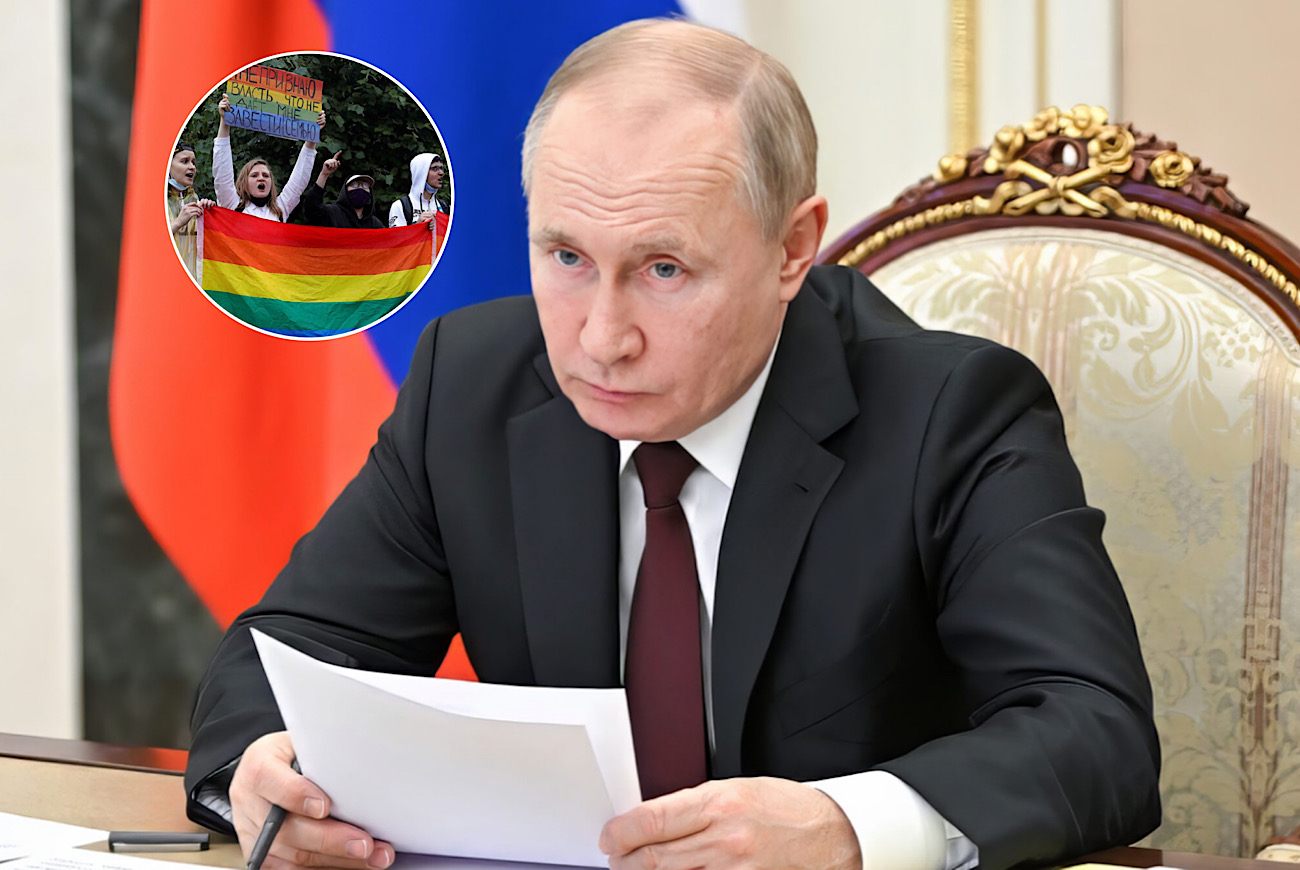On Saturday (November 23), Russian President Vladimir Putin signed into law a new bill banning the adoption of Russia’s children by citizens of other countries that are pro-LGBTQIA+ and where gender transitioning are legal. Additionally, Putin has signed new legislation banning the spread of material that encourages people not to have children.
RELATED: Vladimir Putin Sparks Outrage After Signing Law That Bans Gender Change In Russia
Both bills were previously approved by both houses of Russia’s parliament and their approvals arrive after a series of laws passed suppressing sexual minorities and uplifting longstanding conventional values. Lawmakers claim the argument against having children is part of Western liberal efforts to weaken Russia by encouraging population control and decline.
Before the new approvals, Russian lower house Speaker Vyacheslav Volodin, who’s also one of the bill’s authors, wrote in a Telegram post in July and said lawmakers are trying to prohibit “propaganda of pedophilia, LGBT, and gender reassignment.”
Volodin continued, “These bills are designed to protect people and ensure their health and safety. It is necessary to do everything so that new generations of our citizens grow up oriented toward traditional family values. To protect people from propaganda of childlessness, it is necessary to limit the distribution of destructive content on the Internet, in the media, in movies, and in advertising.”
RELATED: Gay TikTok Couple Arrested In Russia For Violating Anti-LBGTQ+ Laws
Volodin added, “We are talking specifically about protecting citizens, primarily the younger generation, from information disseminated in the media that negatively affects the formation of personality… It is extremely important to eliminate possible dangers in the form of gender reassignment that adopted children may face in these countries.”
In addition to the two previously mentioned bills, other bills approved over the weekend address propaganda for remaining child-free. Meanwhile, the punishments for violating these new laws include fines of up to 5 million rubles (or about $50,000).
According to reports, the new legislation, banning the adoption of Russia’s children to citizens in countries where gender transitions are legal, would affect at least 15 countries, many of them in Europe, plus Australia, Argentina, and Canada. Before this new ban against countries that permit gender transitions, Russia already prohibited citizens in the United States from adopting Russian children in 2012.
RELATED: Russian Politician Claims Peppa Pig Is Turning Children Gay After Show Debuts Lesbian Couple
Just last year, Russia banned gender-transition medical procedures. The law not only prohibits individuals from legally or medically changing their gender on official identity documents but also includes provisions to ban transgender people from adopting or fostering children and annul their marriages if one of the couples changes gender.
In March of this year, the Russian Supreme Court dubbed the “LGBTQIA+ movement” to be extremist. Russia officially added the “LGBT Movement” to its “terrorists and extremists” blacklist, and shortly after the new Anti-LGBTQ+ laws went into effect, two arrests were made. In the years leading up to the arrests, Russia had begun implementing several anti-LGBTQ+ laws, sparking outrage among activists around the world. Some of the laws then included:
- The “gay propaganda” law: This law, passed in 2013, prohibits the promotion of “non-traditional” sexual relations to minors. Critics argue that the law effectively bans public support or discussion of LGBTQ+ issues.
- Ban on adoption by same-sex couples: In 2013, Russia passed a law prohibiting same-sex couples and unmarried individuals from adopting children.
- Criminalization of LGBTQ+ expression: In 2020, Russia passed a law that criminalizes any public display of affection or positive representation of LGBTQ+ people, which can result in fines and even imprisonment.
#Socialites, be sure to check out the post below, then leave us your thoughts in a comment after!






